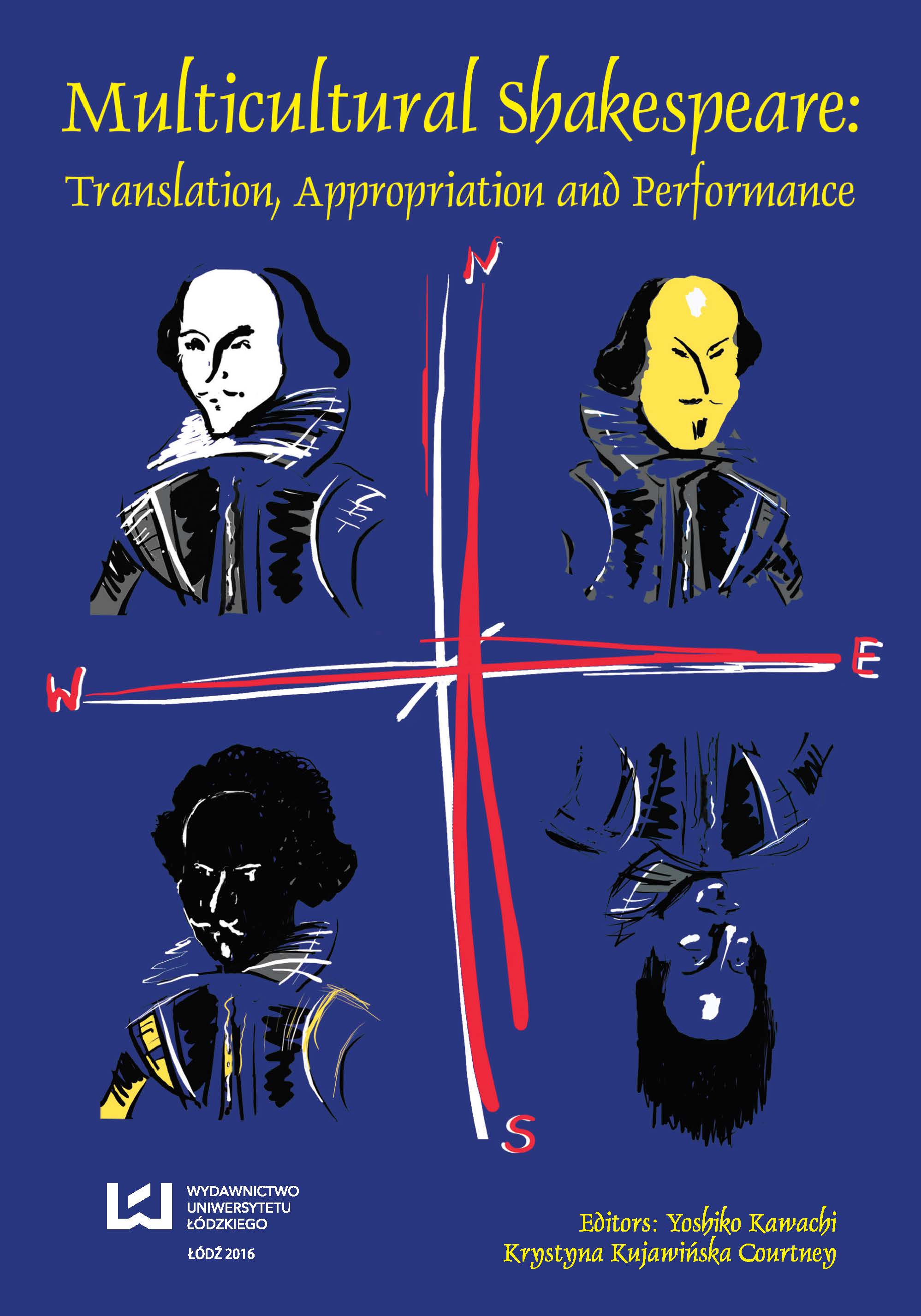“Thou art translated”: Remapping Hideki Noda and Satoshi Miyagi’s A Midsummer Night’s Dream in Post-March 11 Japan
DOI:
https://doi.org/10.1515/mstap-2016-0016Słowa kluczowe:
translation, adaptation, translingual theatre, Fukushima, earth-quake, Post-March 11, Hideki Noda, Satoshi Miyagi, Shakespeare in JapanAbstrakt
Ever since the first introduction of Shakespeare to a Japanese audience in the nineteenth century, his plays have functioned as “contact zones,” which are translingual interfaces between communities and their cultures; points of negotiation, misunderstanding and mutual transformation. In the context of what is ostensibly a monolingual society, Japanese Shakespeare has produced a limited number of performances that have attempted to be multilingual. Most of them, however, turn out to be translingual, blurring the borders of linguistic specificity.
As an example of this, I read A Midsummer Night’s Dream as adapted by Hideki Noda originally in 1992 and then directed by Miyagi Satoshi for the Shizuoka Performing Arts Centre in 2011. Drawing on my experience as the surtitle translator of Noda’s Japanese adaptation “back” into English, I discuss the linguistic and cultural metamorphosis of Noda’s reworking and the effects of its mediation in Miyagi’s rendition, and ask to what extent the production, adapted in post-March 2011 Japan, can be read as a “contact zone” for a translingual Japanese Shakespeare. In what way did Miyagi’s reading of the post-March 11 events inflect Noda’s adaption along socio-political lines? What is lost and gained in processes of adaptation in the wake of an environmental catastrophe?
Pobrania
Bibliografia
Bateson, Gregory. Steps to an Ecology of Mind. Chicago, The University of Chicago Press: 2000.
Google Scholar
Benjamin, Walter. Illuminations. Trans. Harry Zohn. New York: Shocken, 1968 [2007]. 69-83.
Google Scholar
Brisset, Annie. “The Search for a Native Language: Translation and Cultural Identity.” The Translation Studies Reader. Ed. Lawrence Venuti. London: Routledge, 2000. 343-375.
Google Scholar
Dasgupta, Probal. “Trafficking in Words: Languages, Missionaries and Translators.” In Translation: Reflections, Refractions, Transformations. Eds. Paul St-Pierre and Prafulla C. Kar. Philadelphia: John Benjamins, 2007. 57-72.
Google Scholar
Deleuze, Gilles. Two Regimes of Madness. Ed. David Lapoujade. Trans. Ames Hodges and Mike Taormina. New York: Semiotext(e), 2007.
Google Scholar
Eagleton, Terry. Literary Theory: An Introduction. London: Basil Blackwell, 1983.
Google Scholar
Eglinton, Mika. “Interview with Satoshi Miyagi, Ku Na’uka’s Hamlet.” Asian Theatre Journal 28.1 (2011) 234-43.
Google Scholar
Eglinton, Mika. Theatre review. “A Midsummer Night’s Dream adapted by Hideki Noda, directed by Satoshi Miyagi”, Shizuoka Performing Arts Center, Shizuoka, 4 June 2011. Shakespeare Studies 50 (2013) 47-49.
Google Scholar
Eglinton, Mika. Theatre review. “What the worth of the word?” The Japan Times, 29 Jan 2014 http://www.japantimes.co.jp/author/int-mika_eglinton/
Google Scholar
Eglinton, Mika. “Adapting to Post-March 2011 Japan: Hideki Noda and Satoshi Miyagi’s A Midsummer Night’s Dream.” Gaidai Ronso 65 (2015) 133-46.
Google Scholar
Eglinton, Mika. “International Noda Hideki,” A History of Japanese Theatre, Cambridge UP, 2016: 330.
Google Scholar
Hasebe, Hiroshi. Ed. Teihon: Noda Hideki to Yume no Yuminsha. Tokyo: Kawadeshobo Shinsha, 1993.
Google Scholar
Heinrich, Patrick. The Making of Monolingual Japan: Language Ideology and Japanese Modernity. Bristol: Multilingual Matters, 2012.
Google Scholar
Minami, Ryuta. “Shakespeare Reinvented on the Contemporary Japanese Stage” in Performing Shakespeare in Japan. Eds. Ian Curruthers, John Gillies and Minami Ryuta. Cambridge: Cambridge University Press, 2001: 146-158.
Google Scholar
Miyagi, Satoshi. Press conference, 5 April 2011 at the Institut Français, Tokyo. Trans. Mika Eglinton.
Google Scholar
Miyagi, Satoshi. A Midsummer Night’s Dream Programme Note (Shizuoka: SPAC: 2011) 1-2. Trans. Mika Eglinton.
Google Scholar
Miyagi, Satoshi. “Devil in Hideki, Dialogue with Yushi Odashima”, Fujinokuni Sekai Engeki Festival Programme (Shizuoka: SPAC: 2011) 3-4.
Google Scholar
Noda, Hideki. “A Midsummer Night’s Dream” in Mawashi wo Shimeta Shakespeare. Tokyo: Shinchosha, 1994. Trans. Mika Eglinton. Subtitles for A Midsummer Night’s Dream at SPAC, June 2011.
Google Scholar
Noda, Hideki. “Interview with Noda Hideki” in Performing Shakespeare in Japan. Eds. Ian Curruthers, John Gillies and Minami Ryuta. Cambridge: Cambridge UP, 2001: 220-29.
Google Scholar
Powell, Brian. “Japan’s First Modern Theater. The Tsukiji Shogekijo and Its Company, 1924-26.” Monumenta Nipponica 30-1 (1975): 69-85.
Google Scholar
Pratt, Mary Louise. “Arts of the Contact Zone.” Profession 91 (1991): 33-40.
Google Scholar
Schencking, Charles J. “The Great Kanto Earthquake and the Culture of Catastrophe and Reconstruction 1920s Japan.” The Journal of Japanese Studies 34-2 (2008): 295-331.
Google Scholar
Virilio, Paul. The Administration of Fear. Trans. Ames Hodges. Los Angeles: Semiotext(e), 2012.
Google Scholar
Pobrania
Opublikowane
Jak cytować
Numer
Dział
Licencja

Utwór dostępny jest na licencji Creative Commons Uznanie autorstwa – Użycie niekomercyjne – Bez utworów zależnych 4.0 Międzynarodowe.












